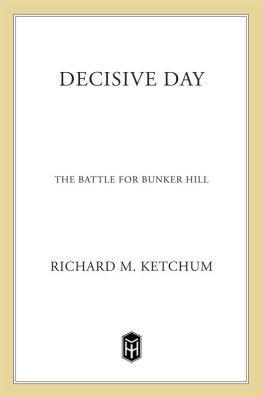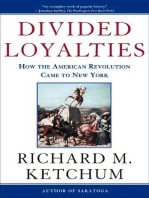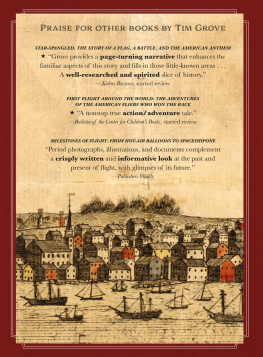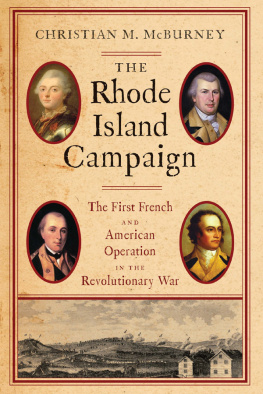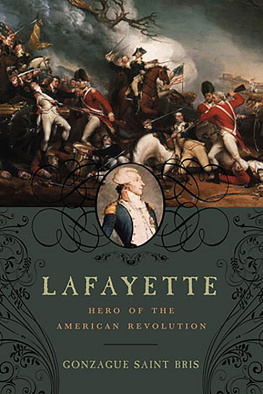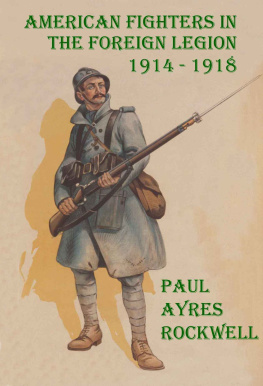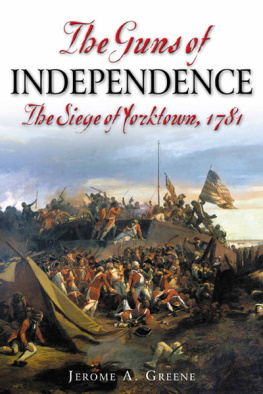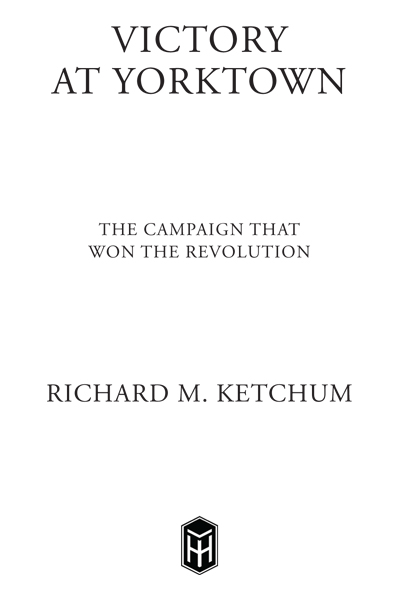
The author and publisher have provided this e-book to you for your personal use only. You may not make this e-book publicly available in any way. Copyright infringement is against the law. If you believe the copy of this e-book you are reading infringes on the authors copyright, please notify the publisher at: us.macmillanusa.com/piracy .
Contents
This book is dedicated to our grandchildrenDerek and Ethan MurrowDylan, Diana, Ben, Bray, and Fred Ketchumwith the hope that they may findthe story of Americas pastas captivating as I have.
MAPS

George Washingtons life mask by Jean-Antoine Houdon, 1785.(Morgan Library, Dept. of Drawings and Prints. Accession no. AZ151)
PROLOGUE
He was the American Revolution , this man whose life mask reveals so much about his character.
When the fighting erupted at Lexington and Concord, it was not yet a war for independencenot even a war, for that matter, but a sure sign that the ugly dispute between the colonies and Great Britain had reached incendiary proportions.
Less than two months later, on June 15, 1775, the Congress of sixty-four delegates from twelve colonies (Georgias representatives were not present) unanimously elected the quiet, reserved Virginia planter to command all the Continental forces raised or to be raised for the defense of American liberty. As grand as that sounded, it meant merely that he was to take charge of a ragtag collection of farmers and tradesmen who made up a volunteer army surrounding the British troops in Boston. From that moment on, for more than eight years, George Washington was the commander in chief of the Continental Army, known as His Excellency, or more often as the General, the capital letter signifying that, while there might be other generals, he was someone special.
The Virginian, who was selected in part because he was not a New Englander and therefore might unite colonies whose history was one of rivalry and distrust, had been slow to conclude that armed resistance to Great Britain was necessary or in the best interest of the colonies. After he passed that milestone, Washington still had little faith that he was capable of the immense task that had been entrusted to him. He admitted to a conviction of his own incapacity and want of experience in the conduct of so momentous a concern. Nor was he reluctant to reveal these doubts in public. In his acceptance speech to Congress he declared, Lest some unlucky event should happen, unfavorable to my reputation, I beg it may be remembered, by every gentleman in the room, that I, this day, declare with the utmost sincerity, I do not think myself equal to the command I am honored with. He was a proud man, ever conscious of what his peers thought of him, so anxious that nothing mar his reputation that the possibility of failure in the top command haunted him.
After all, he had never commanded more than a relative handful of men, had little experience or background in the tactics of warfare, far less in designing strategy. Yet here he was, responsible for using the Continental Army in a manner that would do the most damage to one of the best fighting forces in the world. He never had an adequate number of troops, nor access to a navy that might contain or at least frustrate the enemy. And most of the time he lacked the money to pay his men, buy the food for their survival, or purchase the clothing, shoes, and blankets to keep them even marginally comfortable.
Congress did not vote to go to war with the mother country. The members simply elected George Washington to command the armed forces and then resolved to maintain and assist him, and adhere to him with their lives and fortunes. They left it to him to wage war if that was what it took for the maintenance and preservation of American liberty. Washington knew, as did most of his colleagues, what all of them risked by waging war against their king and country and what the penalties for treason were, and he recalled later that soldiers and congressmen alike chose independence with halters about their necks.
As a Virginia delegate to the Continental Congress, he socialized regularly with other representatives, was reserved but eminently companionable, laughing at jokes, proposing toasts, amusing his companions with comments on the foibles of mankind, enjoying with relish an evening of dancing. He practiced the advice he once gave to his nephew: Be courteous to all but intimate with few; and let those few be well tried before you give them your confidence; true friendship is a plant of slow growth.
In meetings he generally said little but absorbed everything that was discussed and occasionally summed it up for his colleagues. Thomas Jefferson served with Washington in the Virginia House of Burgesses and with Benjamin Franklin in the Congress, and as he put it, I never heard either of them speak ten minutes at a time, nor to any but the main point which was to decide the question. They laid their shoulders to the great points, knowing that the little ones would follow of themselves.
Later, a French officer observed that the Generals face was frequently grave or serious, but never stern, and usually became softened by the most gracious and amiable smile. He is affable and converses with his officers familiarly and gaily. As John Adamss wife, Abigail, described him so aptly, he has a dignity which forbids familiarity, mixed with an easy affability which creates love and reverence.
Along with his other qualities, George Washington had the look of a leader. He stood a head taller than most of his contemporaries, and he was an imposing figure, whose large bones, hands, feet, and thighs gave the impression of great physical strength. The life mask of him made by Jean-Antoine Houdon in 1785 captured his features so faithfully that it was, according to the French sculptor, the most perfect reproduction of Washingtons own face. As the painter Gilbert Stuart put it, the features in his face [were] totally different from what I had observed in any other human being. The sockets of his eyes, for instance, were larger than what I had ever met before, and the upper part of the nose broader. His face, which bore a trace of smallpox scars, was usually sunburned, his hair reddish brown, the eyes gray-blue. What everyone also noticed was the astonishing grace with which this big man walked, with a stride that was fluid and quiet, as he had learned to travel through the wilderness.
He was accused at times of indecisiveness, and there was something to the charge, but Washington was a farmer and surveyor, who had learned through years of experience that results do not come overnight and that patience and time are required for goals to be achieved. In fact, one of his noblest assets was self-discipline, which was responsible for his astounding patience and composure under the most trying circumstances imaginable.
Some of his darkest moments came during the retreat across the Jerseys after the disastrous loss of New York, but gradually he began to take hold, gaining confidence. Realizing how foolhardy it was to meet a superior enemy head-on, he improvised, remained flexible enough to parry blows and anticipate his foes moves, learned to run, feint, and strike an isolated detachment of the British army. He understood that his greatest asset was mobility, to hit and run as he did in the startling victories at Trenton and Princeton.
He asked more of his men than most commanders would, or did, and those men were willing to suffer terrible hardships partly because they believed in the cause they were fighting for and partly because the man who led them did more than lead; he inspired. He took risks in battle that terrified his aides while making his men love him all the more. Through all the years of disappointment and sufferingwhen the army was plagued with desertions for lack of food and clothing and pay, when Congress proved incapable of providing the army with more men or the essentials for survivalWashington never quit, never lost his dedication to freedom, never ceased to believe in the possibility of victory.
Next page

